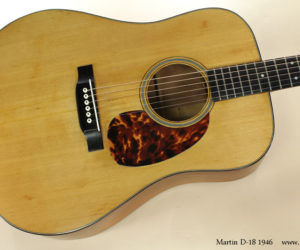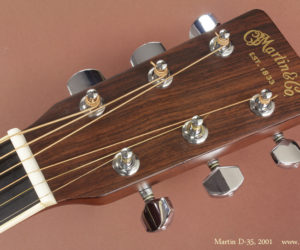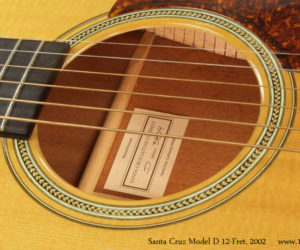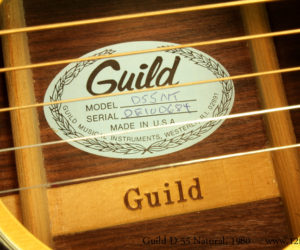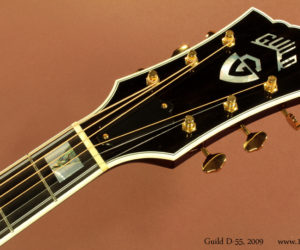The D-18 is known for a brilliant tone with lots of attack and great separation between notes, which makes it very suitable for styles as diverse as bluegrass and solo fingerstyle
MORE →Posts Tagged dreadnought
Rarely do we see a 12 year old Martin that has been so well cared for.
This 2001 Martin D-35 was custom ordered through the Twelfth Fret for a client who wanted the neck contour that he grew up playing as a kid; the soft V profile of the late 1960s.
MORE →The Model D 12-Fret was originally built by Santa Cruz for Norman Blake. The 12-fret neck moves the bridge closer to the center of the vibrating surface, increasing power and responsiveness. The top, bracing and large 4.25 inch sound hole deliver presence throughout the instrument’s range.
This 2002 Santa Cruz Model D 12-Fret Dreadnought is in great playing condition. It speaks quite loudly and clearly, with lots of articulation and sparkle on the upper end, but without overwhelming bass.
MORE →The D-55 was the top of Guild’s dreadnought line, and was available with a sunburst finish in the top or, as with this D55NT example, a natural finish. Built in the Westerly, Rhode Island plant, this fine example of Guild’s production illustrates why Guild guitars gained their reputation for quality and solid construction.
MORE →Here is a beautiful 2009 Guild D-55 Dreadnought steel string. This is pretty much the top of the line for Guild dreadnoughts, and this example is in near-mint condition.
MORE →Here’s a brand-new Martin D-42 Sinker Mahogany dreadnought, built specifically for the summer 2012 NAMM show, in a limited run of 15 guitars. This is number 10.
Though Martin has built ’42’ series instruments since 1898, the first dreadnought version of the D-42 was introduced in 1986. The next step up in decoration is the 45 series, but that’s not to say that the 42 is lacking.
The term ‘sinker’ generally means that the wood in question is essentially salvaged from the bottom of rivers. During logging transport, the densest logs might sink and not be recovered for long periods of time, in some cases 100 years or more.
MORE →